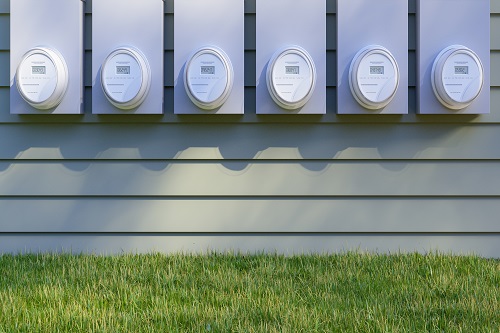ECJ rules that preferential grid tariffs for renewables from national sources breach EU law
In its judgment in Case C-492/14 Essent Belgium of 29 September 2016, the European Court of Justice held that legislation of the Flemish Region in Belgium, limiting free distribution of green electricity to electricity from generators connected to distribution systems in Belgium, was in breach of EU Treaty rules on free movement, as well as the provisions of the 1996 and 2003 electricity liberalisation Directives and the 2001 renewable energy Directive. The judgment contrasts with the Court's judgments in Case C-573/12 Ålands Vindkraft and Cases C-204 to 208/12 Essent Belgium (an earlier claim by the same company), which held that limiting green certificates to domestically generated renewable electricity was not in breach of EU law. This judgment sets out a wider principle that national transmission and distribution regimes, and in particular rules on third party access, must not discriminate against power imported from other Member States.
Background
Legislation of the Flemish Region from 2003 provided that free distribution of electricity from renewable sources on the distribution systems in the Flemish region was limited to renewable electricity generated by generators connected to distribution systems in the Region. In 2004, free distribution was extended to renewable electricity generated by generators connected to a distribution system anywhere in Belgium. Essent, which supplied what it claimed to be green electricity imported from the Netherlands to customers in Belgium, via distribution networks in the Flemish Region, sought compensation from the Flemish Region totalling nearly €16 million for being excluded from these free distribution arrangements.
The Belgian court referred a series of questions to the European Court of Justice, essentially asking whether the Flemish Region rules were in breach of Articles 12, 28 and 30 EC, and of relevant provisions of the electricity liberalisation Directives 96/92 and 2003/54 and the renewable energy Directive 2001/77.
Judgment
The Court noted that the purpose of Directive 2001/77 (which was still in force at the time of the events giving rise to the dispute, and had not yet been repealed by Directive 2009/28) was to promote the production of renewable energy. It therefore facilitated various national mechanisms for supporting renewable electricity production. However, the Court noted that the Flemish legislation did not directly support renewable electricity production, because the free distribution that it envisaged primarily benefited suppliers, as the users of the distribution network, rather than generators. The Flemish legislation could therefore only provide indirect support to producers of renewable electricity. While the measures set out in the Flemish legislation would in principle lead to an increase in national production of renewable electricity, at the same time they must comply with the Treaty rules on free movement. The Court also noted that Article 7(6) of Directive 2001/77 required Member States to ensure that grid charges do not discriminate against electricity from renewable energy sources. However, there was no need for the Court to consider whether Article 7(6) also prohibited discrimination as between renewable electricity from different origins, because Directives 96/92 and 2003/54 contained clear prohibitions on such discrimination, as described below.
The ECJ then turned to Directives 96/92 and 2003/54 (the former was repealed, and the latter was required to be implemented into national law, by 1 July 2004, and each of the Directives therefore covered a part of the events giving rise to the dispute).
Article 16 of the 1992 Directive and Article 20(1) of the 2003 Directive required Member States to ensure non-discriminatory access to the transmission and distribution systems. The Court confirmed that the concept of access to the system covered the use of the system as well as connection to it, and applied to suppliers as well as producers. The principle of non-discrimination meant that comparable situations must not be treated differently unless the difference in treatment was objectively justified. The Flemish legislation that was the subject of the dispute granted exemption from the distribution fees only for electricity originating in Belgium. This therefore amounted to different treatment.
The Court rejected the argument by the Flemish Region and the Flemish energy regulator that the rules on priority dispatch of renewable generation set out in Article 11(3) of Directive 96/92 and Article 14(4) of Directive 2003/54 provided justification for the difference in treatment of nationally-generated renewable energy. However, it recognised that the objective supposedly pursued by the Flemish legislation, namely the promotion of renewable energy, was legitimate.
The Court noted that the Directives permitted Member States to impose public service obligations on electricity undertakings. In this case that included the obligation to distribute green electricity without charge. However, these obligations must be applied proportionately and in compliance with the rules on free movement in Articles 28 and 30 EC. The Flemish legislation encouraged electricity suppliers to buy green electricity generated locally and was therefore capable of hindering imports of electricity from other Member States. It was therefore a measure equivalent to a quantitative restriction prohibited by Article 28 EC. It could nevertheless be justified on one of the public interest grounds set out in Article 30 or by overriding requirements, and must in either case be proportionate. The protection of the environment and the objective of increasing the use of renewable energy sources were overriding requirements. The increased use of renewable energy sources was also useful for the protection of the health and life of animals, plants and humans, and therefore fell within Article 30 EC, as the Court held in its judgment in Case C-573/12 Ålands Vindkraft.
Proportionality
The Court then turned to the issue of proportionality, which was critical to the question of whether the Flemish legislation was compatible with Directives 96/92, 2003/54 and 2001/77, and with Articles 28 and 30 EC.
In order to be proportionate, the national legislation must be appropriate to the achievement of the objective of promoting an increase in the production of green electricity, and must be necessary for that purpose too. The Court acknowledged that national support schemes for renewable electricity are targeted at the production of electricity rather than its consumption because its green nature relates to its production rather than its consumption, and the environmental objectives must therefore be pursued primarily at the point of production. That, together with the fact that EU law had not harmonised national support schemes for green electricity, justified the limitation of the Swedish green certificates scheme to renewable energy sources located in Sweden in Case C-573/12 Ålands Vindkraft. Similarly, in Cases C-204 to 208/12 Essent Belgium, the green certificates were intended to incentivise an increase in the production of green electricity.
However, the Court noted that in this case free distribution of nationally-generated renewable electricity was not intended to give direct support to producers of green electricity. It primarily benefited the supplier rather than the producer. There was no guarantee that the benefit to suppliers would be passed on to producers – it would depend on other factors such as electricity prices, supply and demand and relative bargaining strengths of the producers and suppliers. Support for the producers resulting from this scheme would be "indirect, uncertain and risky", and given that there would have been other more certain and effective ways of supporting the production of renewable electricity without undermining the principle of non-discriminatory third party network access, the Flemish legislation was not proportionate and therefore did not meet the requirements of Articles 28 and 30 EC, the electricity liberalisation Directives 96/92 and 2003/54 and the renewable energy Directive 2001/77.



